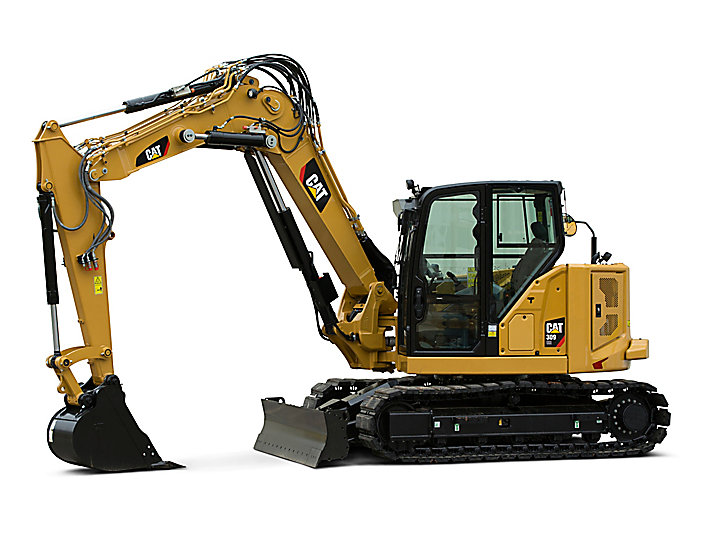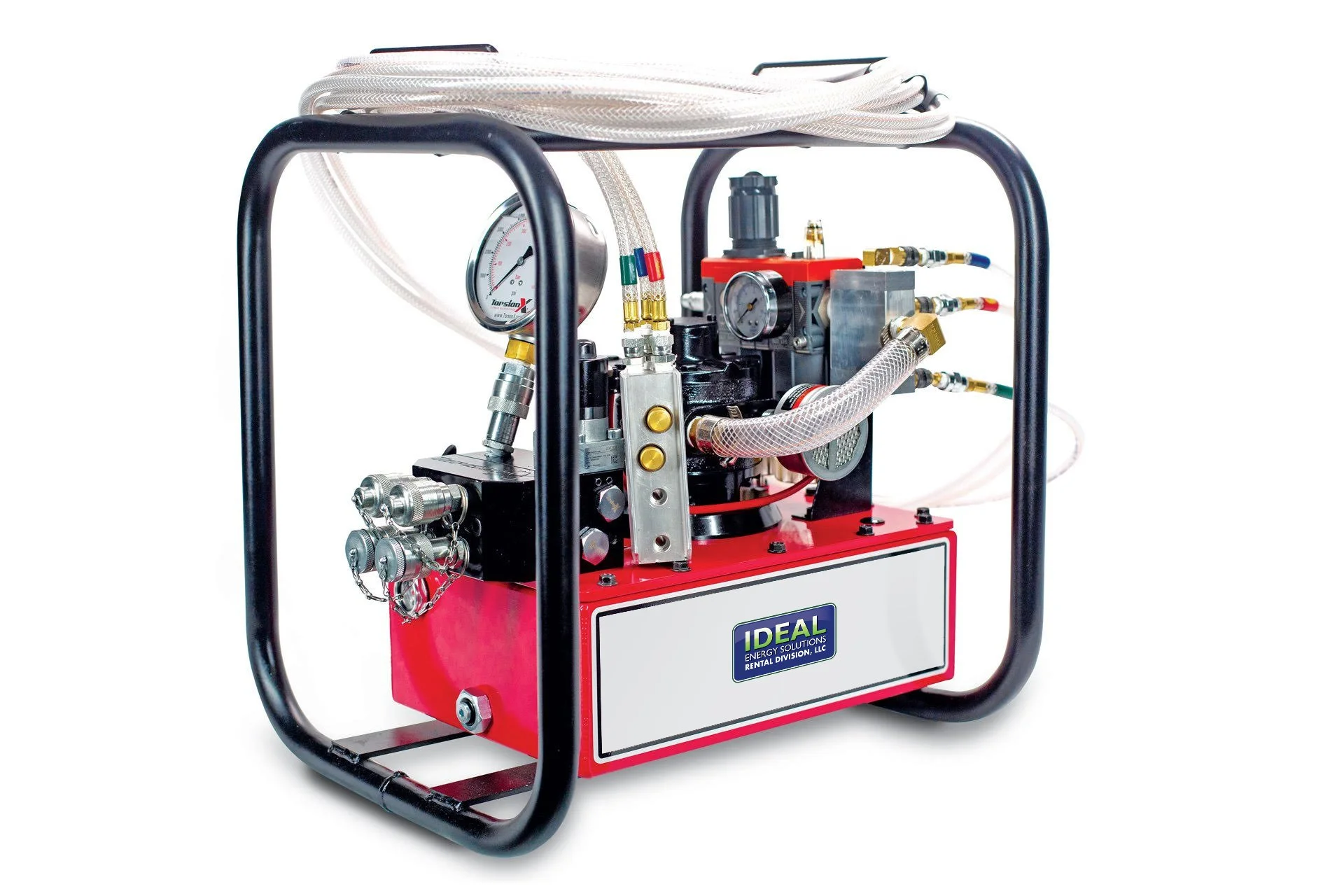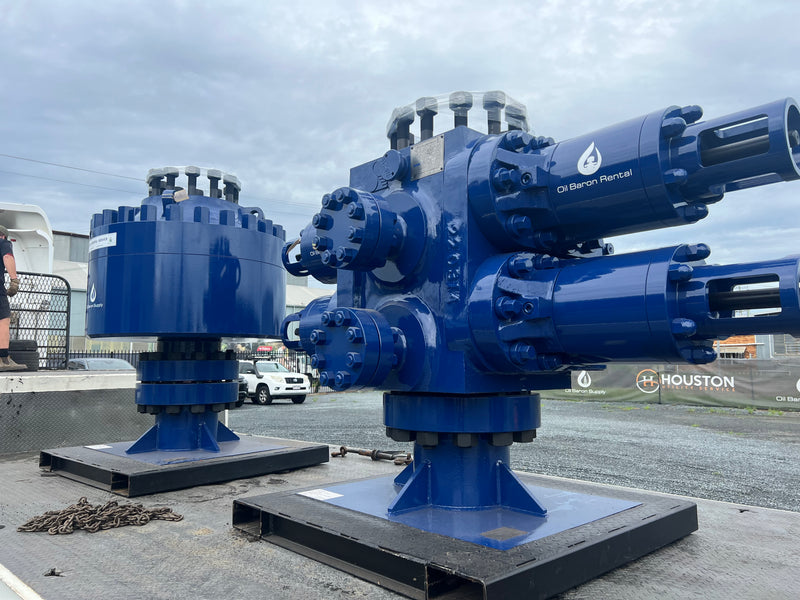A Comprehensive Overview to the Various Types of Oil Field Equipment and Pipeline Equipment Available
The oil and gas sector counts heavily on specific equipment for effective extraction and transportation. Different sorts of machinery, from piercing rigs to tank, play essential functions in this complicated process. Each tool offers unique functions that add to overall operational success. Recognizing these components is important for anybody entailed in the industry. As the sector evolves, so as well do the modern technologies that support it. What improvements are on the perspective?

Drilling Rigs: The Foundation of Oil Expedition
Drilling rigs act as the necessary machinery in the domain name of oil expedition, enabling business to gain access to hydrocarbon reserves hidden deep below the Planet's surface. These rigs come in numerous kinds, consisting of land rigs, offshore rigs, and mobile systems, each designed to operate in certain environments. Equipped with innovative modern technology, drilling rigs can penetrate geological developments with precision, making sure effective source removal. The architectural stability and functional capabilities of these rigs are crucial, as they should stand up to extreme conditions and significant stress. Moreover, the option of an exploration gear impacts the general task price and timeline, making it a crucial consideration for oil business seeking to maximize their expedition initiatives and make the most of efficiency in their procedures.
Pumps: Necessary for Liquid Movement
In the oil extraction process, the role of pumps is considerable, assisting in the activity of liquids throughout numerous stages of production. Pumps are vital for carrying crude oil, water, and other liquids from underground storage tanks to the surface area and then through pipes to refineries. They can be found in various types, including centrifugal, favorable variation, and submersible pumps, each offering details objectives based upon the fluid features and operational requirements. Centrifugal pumps are generally used for their efficiency in high-flow applications, while favorable displacement pumps excel in dealing with viscous fluids. The selection of pump effects overall efficiency, functional safety, and upkeep costs. Correct choice and maintenance of pumps are vital for optimizing manufacturing and lessening downtime in oil area operations.
Valves: Managing Circulation and Pressure

Valves play an important duty in handling the flow and stress of liquids within oil areas and pipes. Numerous kinds of shutoffs serve distinct applications, each made to satisfy particular features fundamental for effective procedure - Superior Rentals reviews. Understanding the features and usages of these shutoffs is necessary for optimizing system performance and safety
Kinds of Valves
Important parts in oil field operations, valves play a vital function in managing the circulation and stress of fluids within pipes and tools. Numerous sorts of shutoffs are used to meet the diverse demands of oil and gas manufacturing. Usual types include entrance shutoffs, which give a straight-line circulation and minimal stress decrease; globe shutoffs, understood for their throttling capabilities; and ball valves, acknowledged for their fast on/off control. Furthermore, check valves stop backflow, while butterfly valves supply a light-weight solution for managing flow. Each valve kind is made with particular products and arrangements to stand up to the severe problems frequently found in oil areas, ensuring dependability and efficiency in operations. Comprehending these types is important for effective system administration.
Valve Applications and Features
While different types of valves serve unique functions, their key applications focus on regulating flow and stress within oil and gas systems. Valves such as gate, world, and round shutoffs regulate fluid motion, guaranteeing peak performance and security. Entrance valves are frequently used for on/off control, offering marginal flow resistance. World valves, on the other hand, deal accurate flow policy, making them ideal for throttling applications. Sphere shutoffs are favored for their quick operation and tight securing capabilities. In enhancement, stress alleviation valves are crucial for protecting against system overpressure, protecting equipment stability. Overall, the suitable look at this site choice and application of valves enhance functional effectiveness, ensuring the reputable transport of oil and gas with pipelines and processing centers.
Compressors: Enhancing Gas Transport
Compressors play an important function in the reliable transportation of gas, making sure that it moves smoothly through pipelines over lengthy distances. These gadgets raise the pressure of all-natural gas, allowing it to get rid of rubbing and elevation changes within the pipeline system. Additionally, compressors assist in the balancing of supply and need, fitting variations in usage and manufacturing rates. Numerous sorts of compressors are utilized in the sector, consisting of centrifugal, reciprocating, and rotary screw compressors, each offering unique advantages based upon the functional needs. Normal upkeep of these compressors is important to maximize performance and reduce downtime, ultimately adding to a reputable gas transportation network. Their crucial function underscores the value of compressors in the overall oil and gas framework.
Storage Tanks: Safe and Reliable Liquid Administration
Effective transportation of natural gas counts on different supporting systems, among which is the correct management of storage space containers. These storage tanks play an important function in securely including liquids, guaranteeing that operational efficiency is maintained while lessening environmental dangers. Created from sturdy products, they are made to stand up to high stress and harsh elements. Effectively sized and purposefully located, tank facilitate the smooth circulation of gas and various other liquids, protecting against bottlenecks in supply chains. Routine upkeep and tracking are important to find leaks or structural issues, advertising safety and compliance with regulatory standards. Inevitably, the reliable monitoring of storage containers is essential for the total honesty and integrity of the oil and gas market's fluid handling systems.
Pipeline Systems: Infrastructure for Transportation
Pipeline systems work as the backbone of the oil and gas industry, assisting in the reliable transportation of hydrocarbons over vast ranges. These systems are composed of various components, consisting of pipes, valves, pumps, and compressors, all thoroughly developed to guarantee seamless flow. The materials made use of in pipeline construction, often steel or high-density polyethylene, are chosen for sturdiness and resistance to rust. Pipeline networks can extend throughout land and water, attaching manufacturing websites to refineries and circulation. In addition, progressed technology allows real-time surveillance of circulation prices and pressure degrees, enhancing functional performance. The calculated placement of these pipes lessens ecological influence while optimizing resource availability, consequently playing a crucial role in conference power needs around the world.
Safety Equipment: Guaranteeing Worker and Environmental Protection
The operation of pipeline find out this here systems, while important for energy transportation, likewise provides considerable security difficulties for employees and the setting. Safety and click this link security equipment plays a substantial duty in mitigating these threats. Individual protective devices (PPE) such as headgears, gloves, and non-slip footwear safeguards workers from physical dangers. Additionally, gas detection systems monitor for leakages, ensuring that unsafe materials do not posture a threat to employees or the bordering ecosystem. Emergency closure systems are vital for swiftly stopping procedures during a situation, avoiding potential catastrophes. Spill control products, consisting of absorbents and obstacles, are fundamental for lessening environmental influence. Overall, buying all-inclusive security devices is crucial for keeping functional integrity and safeguarding both employees and the environment in the oil and gas market.

Regularly Asked Concerns
Exactly how Do I Select the Right Oil Field Equipment for My Job?
Picking the best oil field tools includes examining project specifications, budget plan restraints, and operational demands. Think about factors such as equipment reliability, compatibility with existing systems, and the supplier's online reputation to ensure peak efficiency and security.
What Are the Upkeep Requirements for Oil Field Equipment?
Maintenance demands for oil area tools consist of normal inspections, lubrication, and timely repairs. Operators ought to also stick to supplier standards, screen performance metrics, and guarantee compliance with safety and security laws to enhance durability and performance.

How Can I Guarantee Conformity With Environmental Laws?
To assure compliance with ecological policies, companies should carry out normal audits, apply ideal techniques, buy training, preserve proper paperwork, and stay updated on legislation (Superior Rentals fusion machines). Cooperation with ecological companies can additionally boost adherence to laws
What Is the Typical Life Expectancy of Pipeline Equipment?
The average lifespan of pipeline devices normally varies from 20 to half a century, depending upon variables such as worldly top quality, environmental conditions, and maintenance methods. Normal inspections can substantially influence longevity and functional effectiveness.
Exactly how Do I Securely Carry Oil Field Equipment to Remote Locations?
Delivering oil field tools to remote areas calls for mindful planning, consisting of path assessment, protecting licenses, making use of suitable vehicles, and ensuring security protocols are followed. Correct training and interaction among teams are essential for effective transportation.